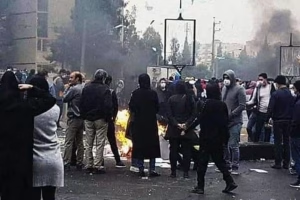Tianjin: China and Russia have unveiled their vision for a new international order at the Shanghai Cooperation Organisation (SCO) summit, with Beijing pledging fresh financial incentives and Moscow calling for genuine multilateralism in a direct challenge to US dominance
Chinese President Xi Jinping told leaders from more than 20 countries that global governance has reached a new crossroads, urging members to reject hegemonism and power politics and instead embrace true multilateralism.
His remarks, delivered on Monday in the northern Chinese city of Tianjin, were echoed by Russian President Vladimir Putin, who said the bloc was laying the political and socioeconomic groundwork for a new system of stability and security in Eurasia.
In his most ambitious proposal yet for the SCO, Xi announced plans for a new development bank while pledging 2 billion yuan ($280 million) in grants and 10 billion yuan ($1.4 billion) in loans for member states. The offer marked a shift for the largely symbolic body, which, since its founding in 2001 has struggled to produce tangible achievements.

Xi also outlined a ‘Global Governance Initiative,’ framed around values of sovereign equality and multilateralism. Analysts described the move as a sign that Beijing is openly seeking to build a parallel system of global leadership outside the traditional US- and European-led order.
The summit also highlighted efforts by China and India to mend ties after years of strained relations over border disputes. Xi and Indian Prime Minister Narendra Modi pledged to resolve outstanding issues, a diplomatic thaw accelerated by US President Donald Trump’s recent decision to impose a 50 percent tariff on Indian goods and criticise New Delhi’s Russian energy imports. Xi, Modi, and Putin were later seen walking and talking together, in what observers described as a rare show of unity among the three powers.
The SCO, which includes China, Russia, India, Iran, Pakistan, Belarus, and several Central Asian states, has increasingly positioned itself as an alternative to US-led institutions such as NATO and the World Bank. Its dialogue partners span the Middle East and Asia, including Saudi Arabia, Turkiye, and Cambodia.
The summit precedes a massive military parade in Beijing this week, marking the end of World War II in Asia. Leaders including North Korean leader Kim Jong Un, are expected to attend, underscoring the growing convergence among countries outside the US alliance network.

























